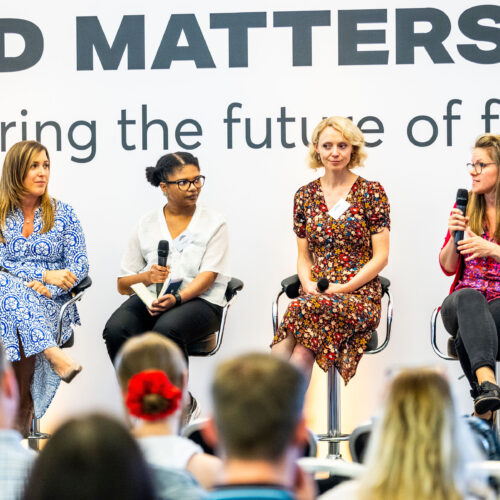Looking after crops and maintaining a resilient food supply is as important now as it has ever been.
But the challenges farmers are facing are growing, from inflation to a growing population and climate change – and all with sustainable agriculture front of mind.
In this episode of the Food Matters Live podcast, made in partnership with CropLife Europe, we explore the role biopesticides could play in helping to ease some of the pressure on our food producers.
Biopesticides are pesticides produced using naturally occurring substances such as plants, microbes, or biochemicals.
They offer opportunities for protecting crops from pests and diseases and have a more favourable toxicological safety profile compared to conventional pesticides.
In many parts of the world, they are widely used and new products can make it to market within a couple of years. In Europe, things are moving, but much more slowly.
The question is: is Europe playing catch-up?
This episode looks at how biopesticides are currently being used in Europe, how they might be used in future, and whether or not current regulations are in need of a shake-up.
Olivier de Matos, Director General, CropLife Europe
Olivier de Matos has been Director General of CropLife Europe, since October 2021.
Before joining CropLife Europe, Olivier was the Secretary General of ECETOC for four years, where he led the association and promoted its scientific programme and initiatives.
Previously, Olivier was Managing Director at Burson-Marsteller, a leading communications and public affairs agencies globally (now Burson Cohn & Wolfe). He was Leader of the Environment and Energy Practice and member of the Brussels Leadership Team.
As a Portuguese and French national, he speaks fluent English, Portuguese, French, Spanish and Italian.
CropLife Europe
CropLife Europe is the European organisation that represents the crop protection sector.
Its members are global companies, small and medium-size enterprises (SMEs), and national associations operating in conventional pesticides, biopesticides, plant biotechnology, and digital and precision agriculture.
It embraces the ambitions of the EU Green Deal and Farm to Fork strategy and believes Europe’s farmers must have access to a full toolbox of innovative crop protection solutions to maintain their production as they transition to a more resilient and sustainable farming system.







